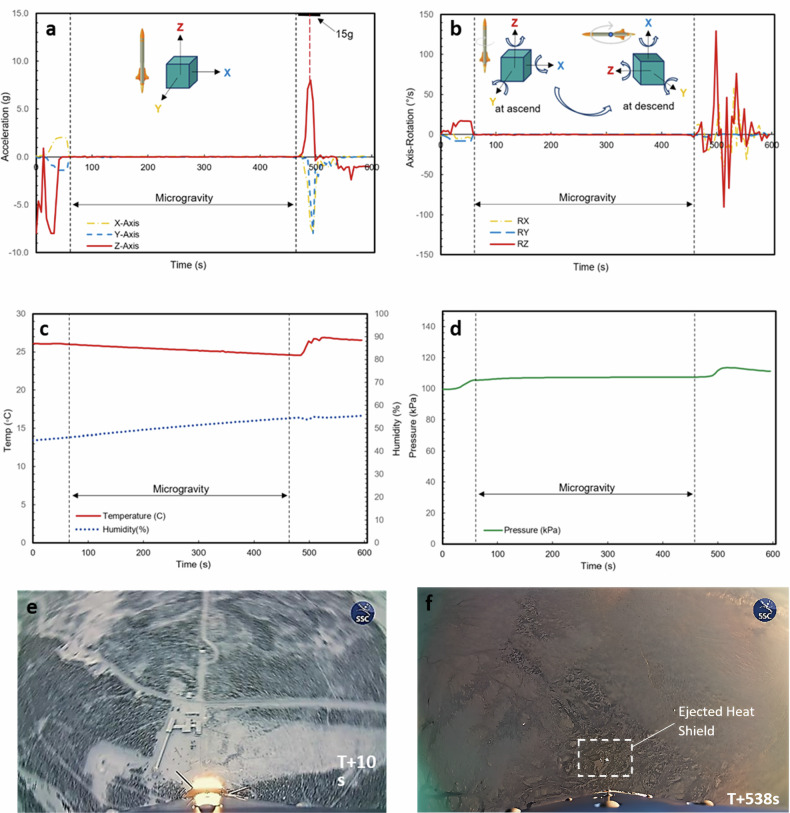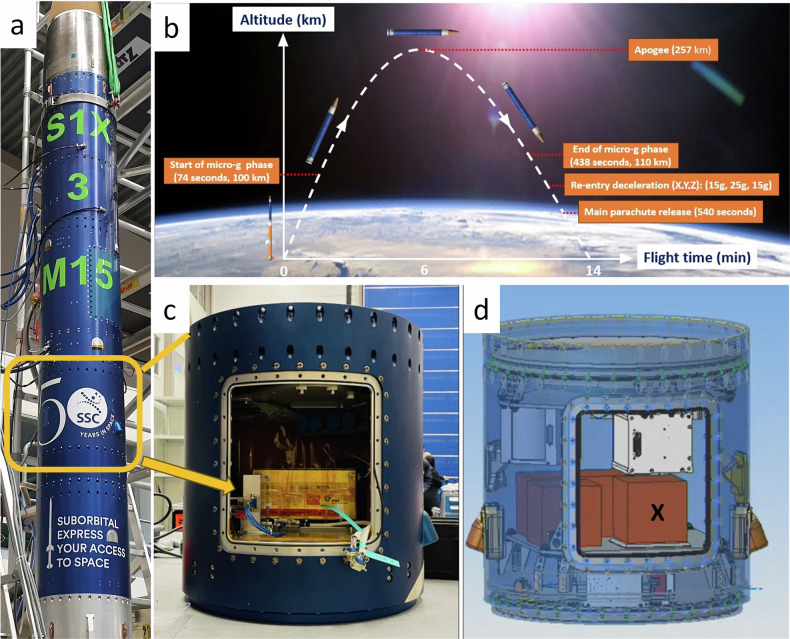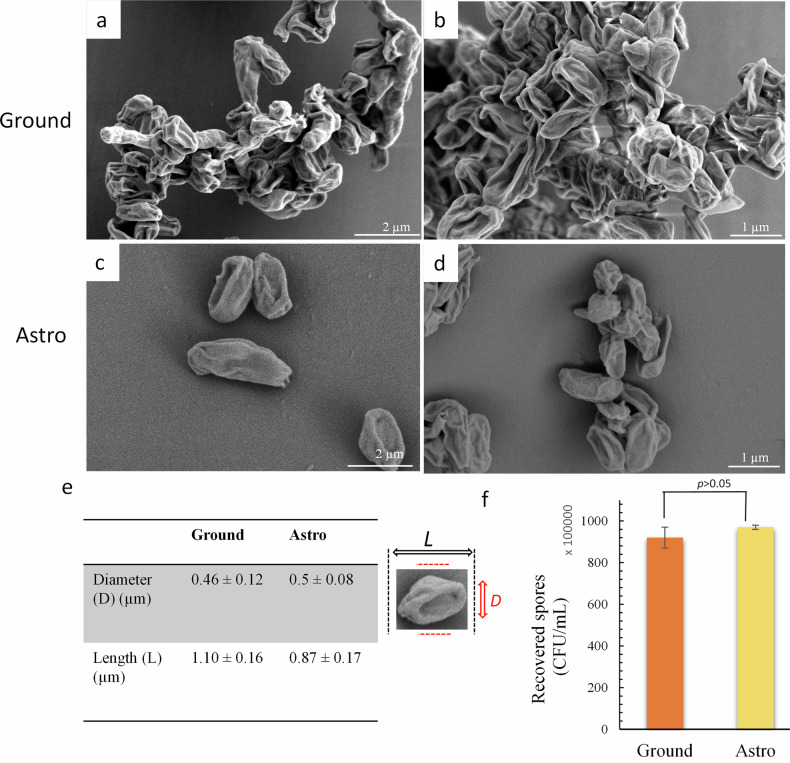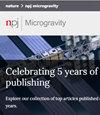亚轨道太空飞行中极端加速、微重力和减速对枯草芽孢杆菌的影响。
IF 4.1
1区 物理与天体物理
Q1 MULTIDISCIPLINARY SCIENCES
引用次数: 0
摘要
研究了亚轨道飞行极端加速、微重力和减速对枯草芽孢杆菌ATCC 6051孢子的影响。枯草芽孢杆菌孢子在返回地球大气层时,最大加速度为~13 g,微重力阶段为6 min,减速为30 g (~300 m/s2),最大旋转速度为220 s-1。飞行后的分析表明,孢子的形态和活力没有变化,证实了枯草芽孢杆菌孢子对太空飞行条件具有弹性。本文章由计算机程序翻译,如有差异,请以英文原文为准。



Effects of extreme acceleration, microgravity, and deceleration on Bacillus subtilis onboard a suborbital space flight.
The effects of extreme acceleration, microgravity, and deceleration of a suborbital spaceflight on Bacillus subtilis ATCC 6051 spores were investigated. B. subtilis spores were exposed to a maximum acceleration of ~13 g, a microgravity phase of 6 min, deceleration of 30 g (~300 m/s2), and a maximum rotating velocity of 220 os-1 upon re-entry into Earth's atmosphere. Post-flight analysis showed the spores exhibited no change in morphology or viability, confirming that B. subtilis spores are resilient to space flight conditions.
求助全文
通过发布文献求助,成功后即可免费获取论文全文。
去求助
来源期刊

npj Microgravity
Physics and Astronomy-Physics and Astronomy (miscellaneous)
CiteScore
7.30
自引率
7.80%
发文量
50
审稿时长
9 weeks
期刊介绍:
A new open access, online-only, multidisciplinary research journal, npj Microgravity is dedicated to publishing the most important scientific advances in the life sciences, physical sciences, and engineering fields that are facilitated by spaceflight and analogue platforms.
 求助内容:
求助内容: 应助结果提醒方式:
应助结果提醒方式:


